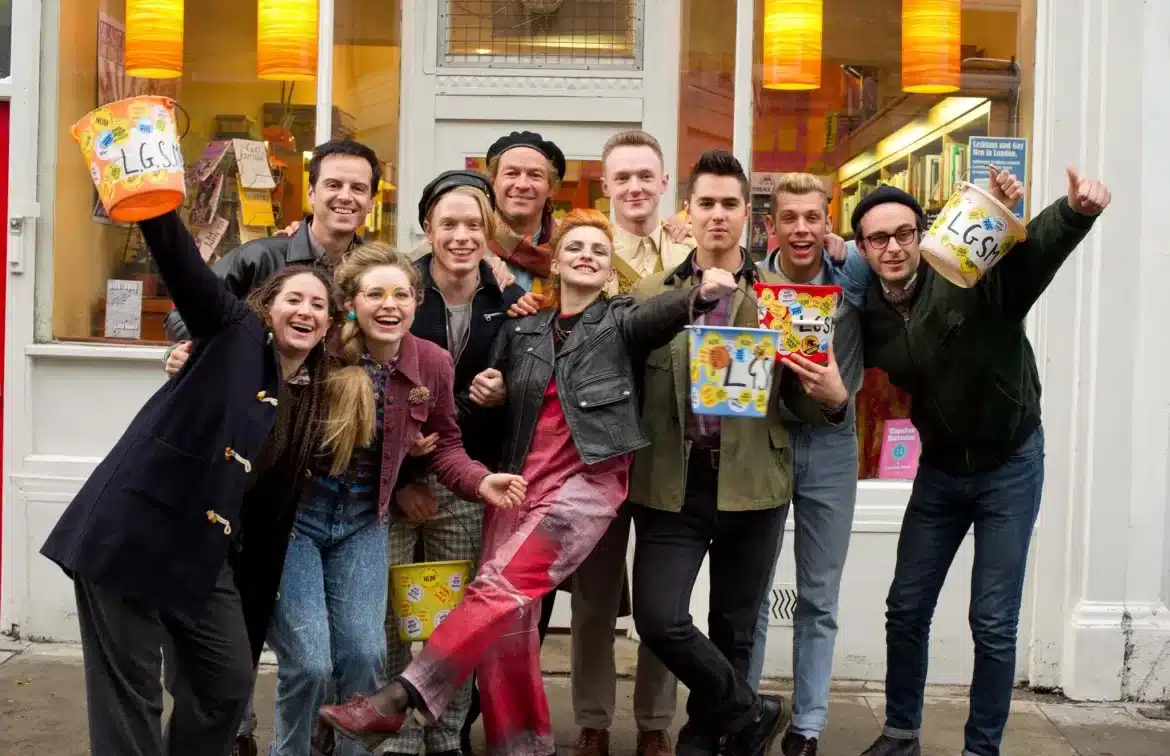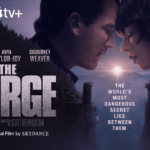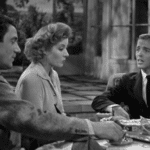In 2014, actor and screenwriter’s film ‘Pride’ first debuted in Cannes, where it would win the Queer Palm. Thereafter that Fall it was released in the United Kingdom, where it was met with where it was met with critical and commercial success. Now ten years later we revisit the film that looked back at the true story of one group of LGBTQ activist’s work to support the striking coal miners in Thatcher’s England, and how these seemingly disparate groups came together and broke barriers.
Pride (2014) Review:
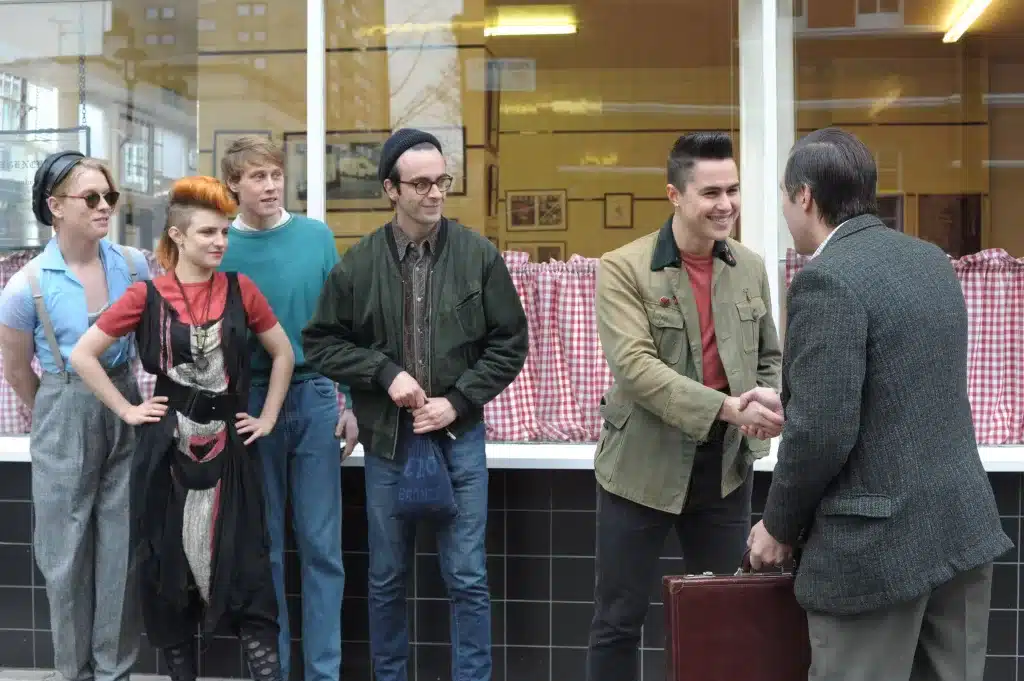
Pride (2014)
It’s Thatcher’s England in the 1980s, and we’re introduced to Joe Cooper aka Bromley (George MacKay), who nervously approaches a pride parade. Bromley eventually joins in and befriends a local group of LGBTQ activists. One of the members Mark Ashton has noticed the police presence and threats have diminished as they’ve been targeting the miners instead, as they are striking at this time. Ashton wants to show solidarity with the miners, and so he and the others form Lesbians and Gays Support the Miners (GLSM). GLSM begins to campaign on the streets raising money, which they then hope to take to the heart of miner country. As these two worlds collide GLSM and the miners navigate their differences while discovering what brings them together.
I watched Pride a few years after its initial release; however, it’s stuck with me as not just a powerful Queer film, but also as just an incredible tale of solidarity. Ashton and his compatriots real story is incredible already, and from my understanding Pride did a pretty excellent job retelling it in its own way. Perhaps the one take it or leave it note for Pride, that so many historic films have as an issue, is the centering of a fictionial audience stand-in in Bromley. I can understand how for many, especially learn this character is no more then that, feel the story therefore might drift away a bit from the group at the center. I can certainly see that argument, and I won’t inherently disagree with it normally.
However for me I’ve now introduced this film to many friends and family members, including those who had much less engagement with members of the LGBTQ community, and I think the one note is that Bromley’s coming out (even treated as it is) does resonate with these people. Many really can’t grasp the terror then, and now, of just trying to love who one loves without hate being thrown at them. This is unfortunate, but it’s why we get stand-ins like these, a likeable character at least, to serve that audience.
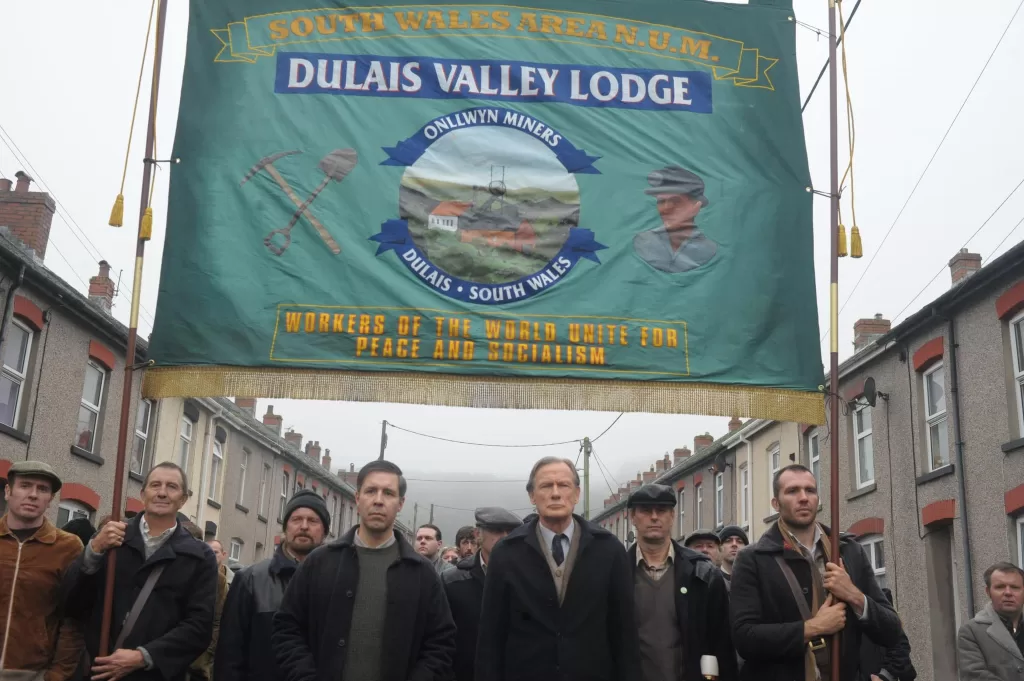
Pride (2014)
That aside I felt it did an incredible job highlighting the group at the center, whose efforts to support the miners showed true courage and some incredible love. Now ten years removed from Pride’s release, it’s hard to imagine we’d be in a year with so many successful strikes; however, it’s true. Yet then and especially in the 80s that wasn’t always the case, and thus it’s important to realize how divisiveness can break apart many communities, even those who both want to fight for equality in various ways – be it equal rights or equal pay. The GLSM recognized this at the time, and that’s why it’s such a moving story.
What really helps further make this a gem of a film are the incredible performances from the cast. There are many highlights including Ben Schnetzer, Andrew Scott, Bill Nighy, Imelda Staunton, and really so many others. Schnetzer, who incredibly I discovered isn’t even British (though he’s spent much time in England), is a tour de force as Ashton, a character who knows what he’s proposing may seem crazy to others but shows his conviction throughout. Likewise Scott, an incredible actor who has been recognized as such time and again since, plays one of the most important roles delivering an emotional beat that is powerful but also all too true to life. Likewise Staunton and Nighy, representing the miners, come through again even with smaller roles as they always do.
If anything has changed with age you’d hope it’d be that stories such as these needn’t be reminders of the suffering of LGBTQ members; however, even as we progress that still remains. Still it also shows the power of community, and it tells an essential story that is one that would otherwise be all too often lost, or untold, in history. Especially for an American viewer this was such an eye opening film, and one that’s as inspiring as it is beautiful. I hope that the story of these activisits will continue to resonate as this film turns 20, and 30, and 40, as it shows what can be done through love, even against the greatest of odds.
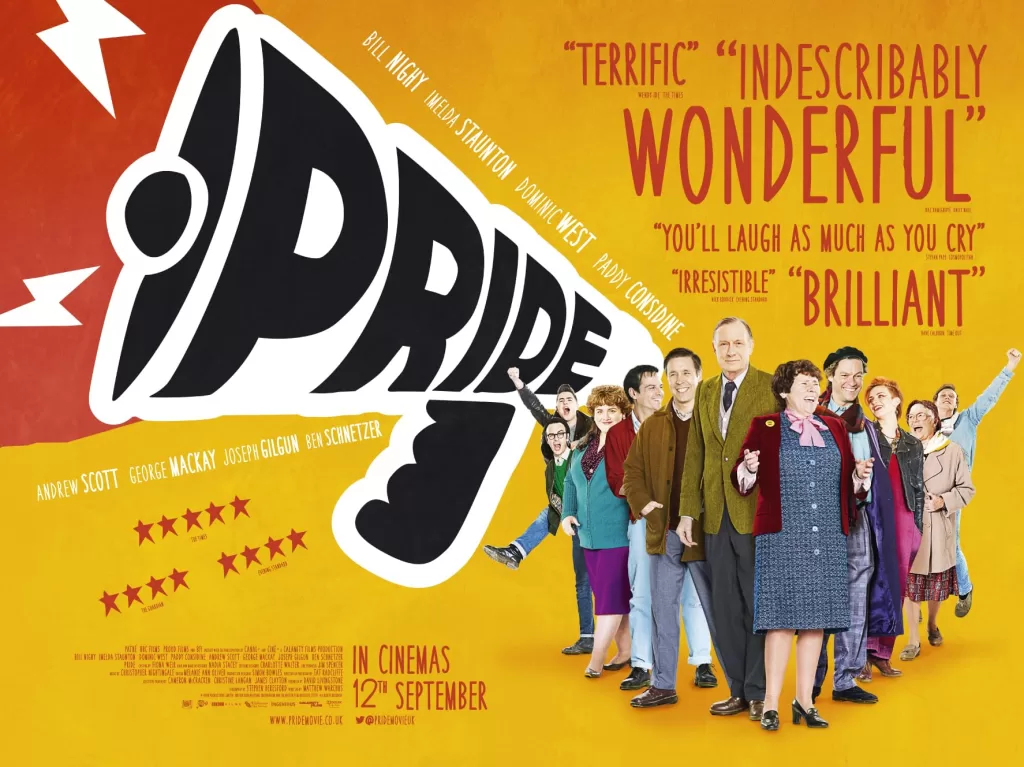
Pride (2014)
